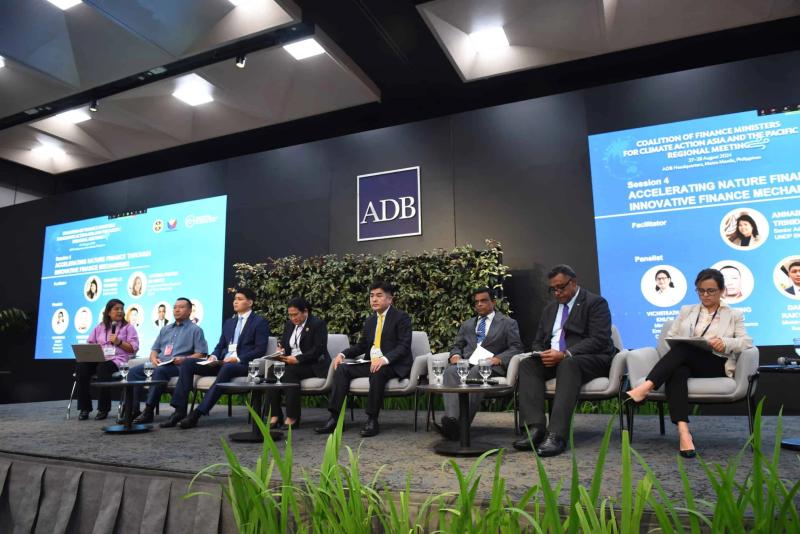

The Partnership for Action on Green Economy (PAGE) put forward the discussions on nature finance as part of the Asian Regional Meeting of the Coalition of Finance Ministers for Climate Action, held in Manila, Philippines, on 27 and 28 August 2024.
In line with its new Strategy, PAGE has begun partnering with the Coalition of Finance Ministers for Climate Action (CFMCA), to extend its tools and services to finance ministers. This collaboration provides a platform for ministers from PAGE countries to engage in vital discussions within the Coalition, exploring innovative ways to finance their transitions to low-carbon and nature-positive economies. By integrating PAGE’s expertise with the Coalition’s broad network, finance ministers are better equipped to drive sustainable economic transformations that align with both national and global climate goals.
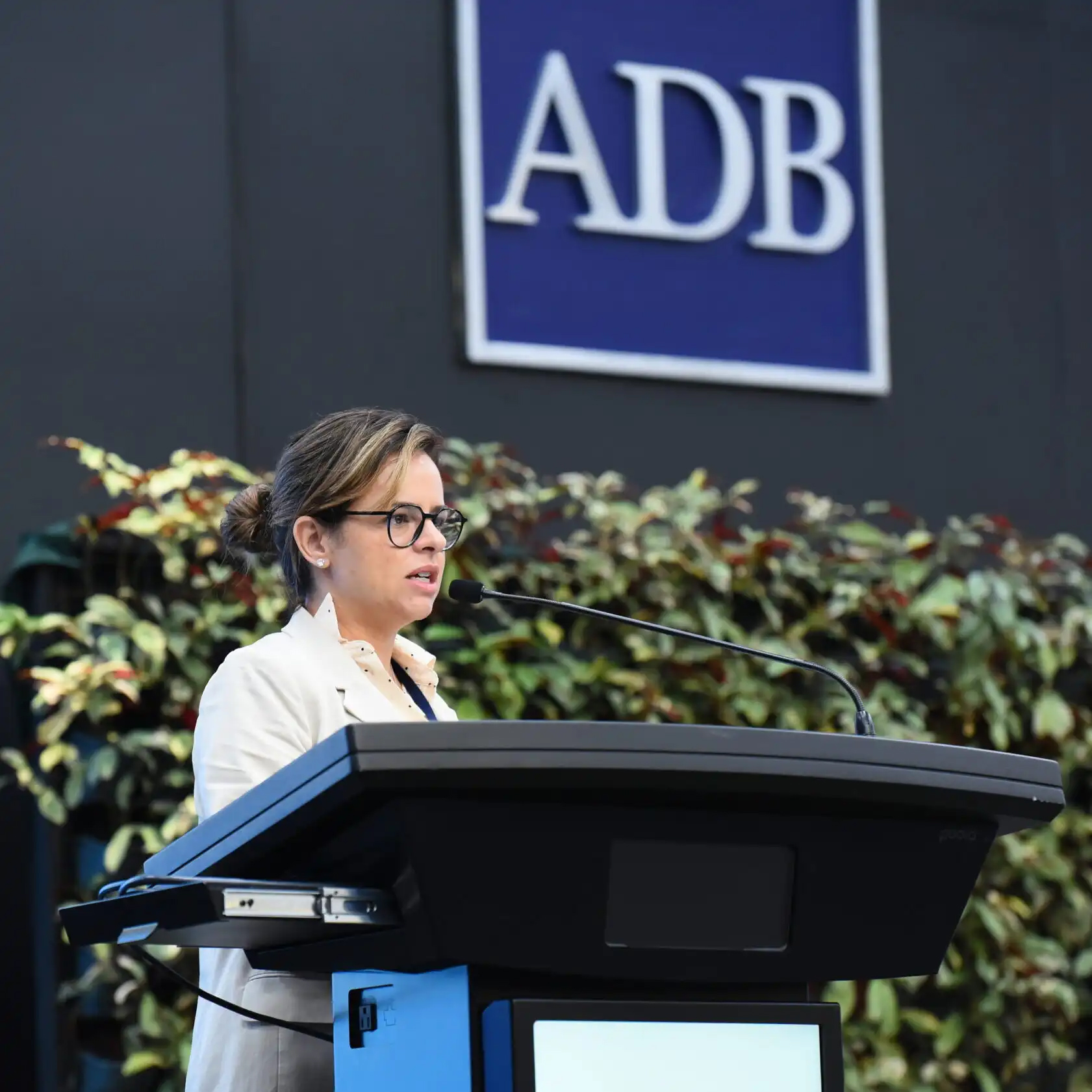
During the event, the United Nations Development Programme (UNDP) and the United Nations Environment Programme (UNEP) co-led a dedicated session on nature finance. This session delved into cutting-edge mechanisms such as green bonds, biodiversity offsets, and ecosystem service payments, which have the potential to significantly bolster biodiversity conservation and ecosystem restoration efforts.
Annabelle Trinidad, Senior Technical Advisor at United Nations Development Programme (UNDP) and Luciana Fontes de Meira, technical team member of PAGE and programme officer at United Nations Environment Programme (UNEP), facilitated discussions on how these financial tools can attract and drive sustainable investments into nature-based solutions, thus contributing to broader environmental and economic goals.
“Development partners like PAGE play a crucial role in supporting countries with the tools to shape the enabling environment for increased green financing, directing investments toward nature-based solutions that help countries achieve their Rio commitments.”, said Luciana Fontes de Meira.
Development partners like PAGE play a crucial role in supporting countries with the tools to shape the enabling environment for increased green financing, directing investments toward nature-based solutions that help countries achieve their Rio commitments. - Luciana Fontes de Meira, Programme Officer and PAGE technical team member, Economic and Trade Policy Unit, UNEP
In addition to this, UNEP also hosted a brainstorming session focused on adaptation financing. The session concentrated on the importance of financial mechanisms like results-based budgeting to help countries achieve their climate adaptation goals. Participants exchanged ideas on how these tools could be implemented effectively to enhance resilience against climate impacts.
Delegations from PAGE countries in the Asia-Pacific region, including the Kyrgyz Republic, Kazakhstan, Mongolia, Cambodia, Indonesia, and Thailand, actively contributed to the discussions. They shared insights and examples of how PAGE’s initiatives are helping their nations transition toward low-carbon development pathways. These case studies highlighted the tangible benefits of integrating sustainable finance into national strategies for achieving climate objectives.
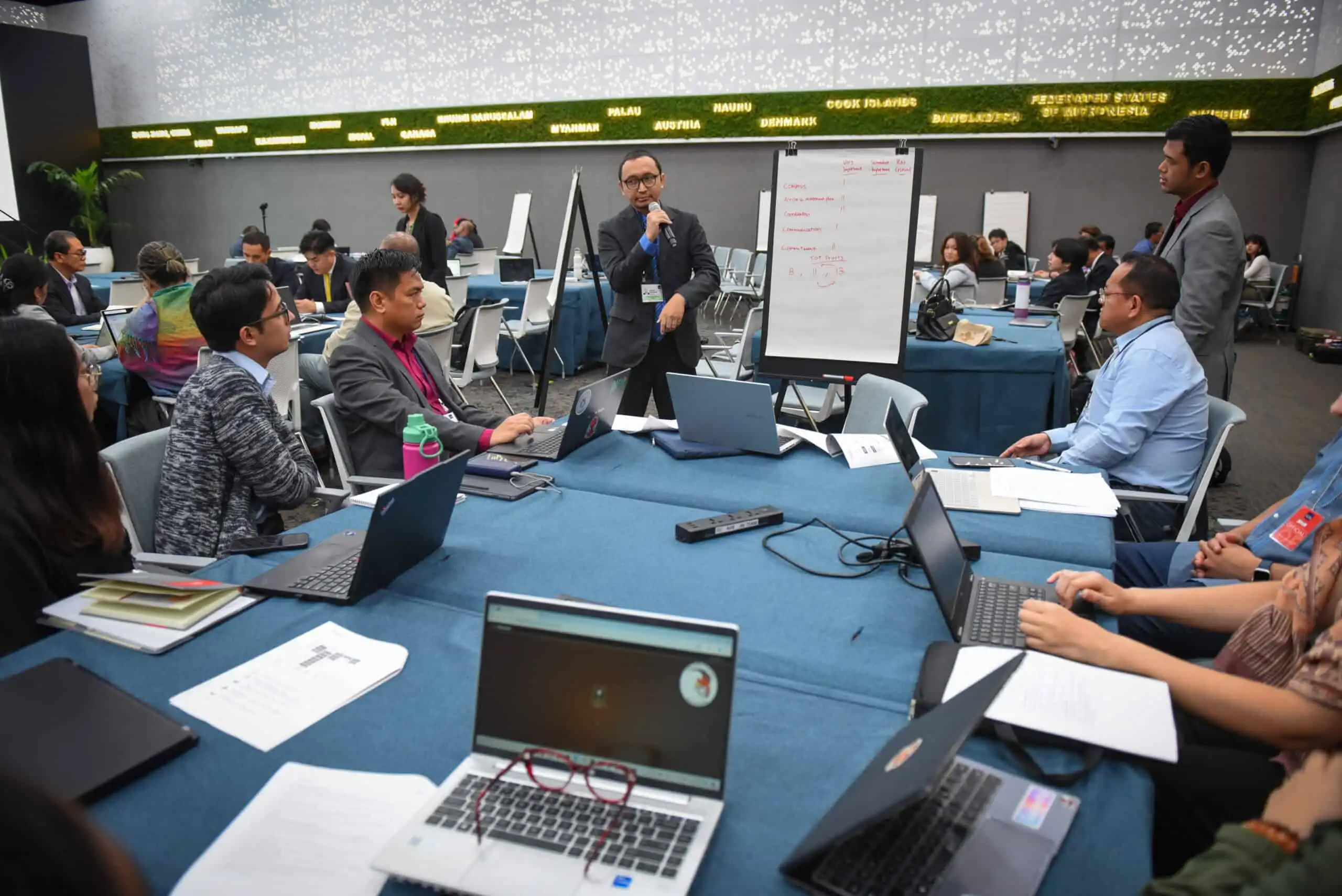
Our commitment does not end at our borders. Because climate change does not respect boundaries, and neither should our actions. It is equally important that we support and stand by our regional neighbors. - Ralph G. Recto, Secretary of the Department of Finance (DOF), Philippines
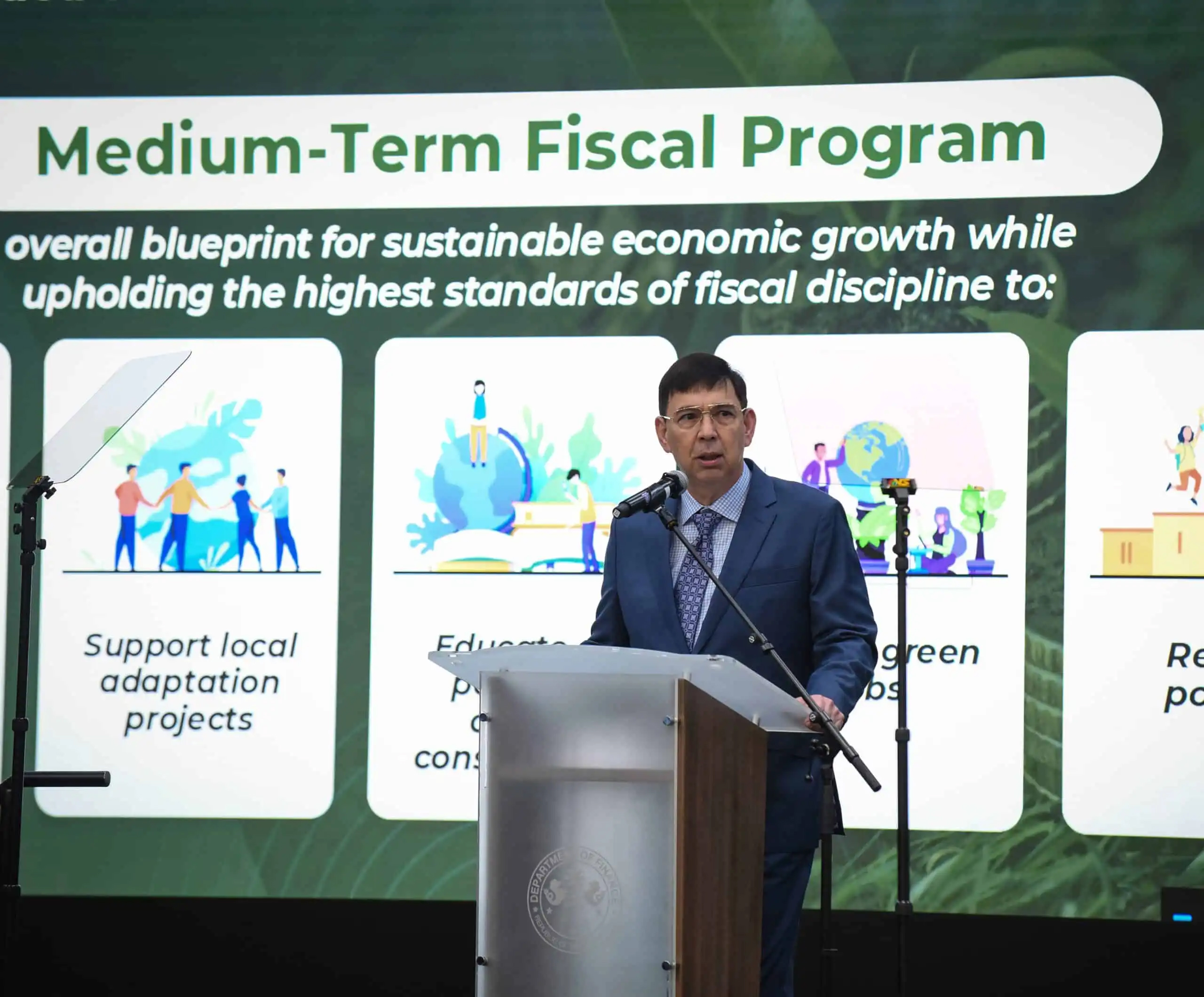
In his address, Philippine Finance Secretary Ralph G. Recto urged his fellow finance ministers to champion integrated solutions that simultaneously address climate action and poverty eradication, emphasizing the delicate balance between economic growth and climate resilience. “Here in the Philippines, we are no strangers to the economic gymnastics required to balance growth and resilience,” he remarked.
He further added, “As Finance Ministers, we understand better than most that these two vital agendas are not competing forces on a scale. When done right and contextualized in our own realities, they reinforce each other to ensure the welfare, security, and prosperity of our people.”
Secretary Recto also highlighted the Philippines’ approach to climate finance, pointing to the People’s Survival Fund (PSF) as an example of channeling resources directly to community-led adaptation projects. He stressed the importance of fiscal stability as a foundation for long-term climate investments, underscoring the role of green infrastructure and local adaptation projects in achieving sustainable economic growth.
The high-level gathering brought together finance ministers and key stakeholders from across the Asia-Pacific region to address critical climate-related challenges and explore innovative financial mechanisms for sustainable development.
Topics such as adaptation and resilience, nature finance, and national transition plans were at the forefront of the conversations, underscoring the pivotal role that financial leadership plays in steering countries towards a sustainable and climate-resilient future.
The Department of Finance (DOF) of the Philippines, in partnership with the Coalition of Finance Ministers for Climate Action (CFMCA), co-chaired by the Netherlands and Indonesia, and supported by key international organizations including the Asian Development Bank (ADB), the United Nations Development Programme (UNDP), the United Nations Environment Programme (UNEP), the NDC Partnership, and the World Bank (WB), organised this regional meeting.
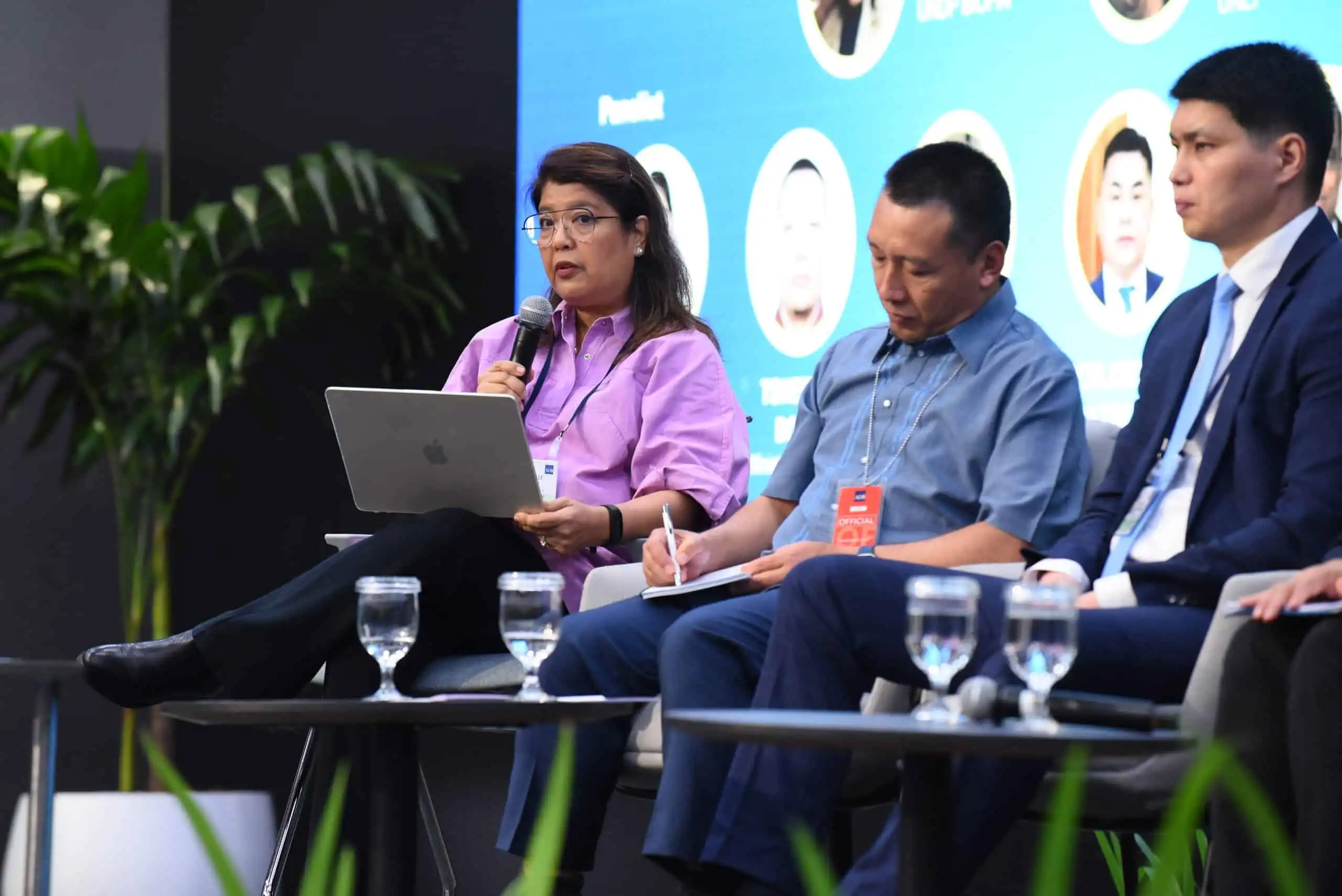
The Coalition of Finance Ministers for Climate Action was created in 2019 and now has 92 members, including all the G7 countries, and 27 Institutional Partners. It brings together economic, fiscal and financial policymakers to lead the global climate response and in securing a just transition towards low-carbon, resilient development.
Since 2013, the Partnership for Action on Green Economy (PAGE) has become a prominent alliance of five UN agencies – UNEP, ILO, UNDP, UNIDO and UNITAR– funding partners, and 22 partner countries that work together to transform economies into drivers of sustainability.
Originally published on www.un-page.org